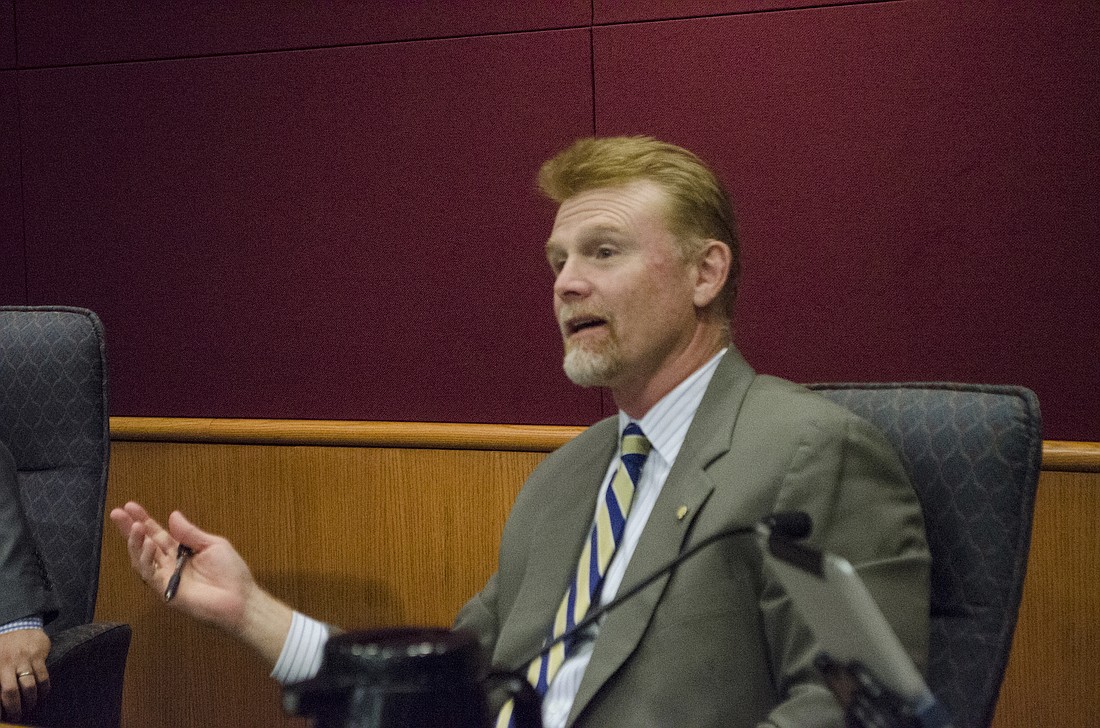- February 15, 2026
-
-
Loading

Loading

During every regular County Commission meeting, there are at least two scheduled opportunities for public comment. The morning of Nov. 27, the comments lasted about 35 minutes.
Most of the speakers were present to urge the board to move quickly to implement two charter amendments regarding the closure of a segment of Beach Road on Siesta Key. Those speakers expressed frustration that, although voters approved a referendum to reopen Beach Road earlier in November, the county had filed legal claims in September asserting the amendments were overly vague and did not comply with state law.
Mike Cosentino, who led the campaign to reopen Beach Road, was part of a larger group of residents who admonished the county for not swiftly adopting the voter-approved changes.
“You’re literally pouring poison on the very roots of our democracy,” Cosentino said.
County Commissioner Nancy Detert said the county was complying with its obligations to implement the referendum results. Although the residents in attendance hoped to stir the board to take action, Detert and other commissioners expressed a different reaction: frustration.
“I guess nobody wants to stick around to see how their government really works,” Detert said as speakers trailed out of the chambers and the board moved onto the rest of its agenda. “You just want to complain and leave.”
That frustration lingered later into the meeting when Commissioner Charles Hines suggested the county consider revising its procedures for managing the open-to-the-public period. He said he was willing to consider different suggestions: perhaps placing a 15- or 30-minute cap on the morning commentary or holding the public comment period at the end of the day.
But he said under the existing setup, large groups have the opportunity to use the platform to focus on an item that’s not on the agenda, which affects people in attendance to discuss items that are on the agenda. Hines said that’s damaging to individuals or groups who have hired attorneys or sent representatives who expect their discussion to take place at a certain point of the meeting.
“Everything gets thrown off,” Hines said. “It actually hurts public comment.”
Hines wanted to be clear that the commission didn’t want to discourage people from speaking at the meetings. He called it a matter of meeting management: What is the most appropriate way to manage the public comment periods? He also assured residents that commission members can be reached outside of meetings and respond to all methods of public input.
The rest of the commission was receptive to Hines’s suggestion, agreeing to revisit the conversation at a future meeting.
“What we need to do is sort out the genuine people from the people who are trying to hijack the agenda,” Detert said.
Although he said it hasn’t been a common issue for the county, Hines took issue with activist groups who hoped to sway the commission by showing up in force to meetings and badgering officials. He said he would make all decisions on the merits of an individual case, but he suggested more aggressive forms of advocacy do a disservice to the cause the individuals are supporting.
“We want your input, but it’s going to be in a managed way,” Hines said. “We’re not going to turn over our County Commission meetings to this mob-type of playbook on how to change public policy.”